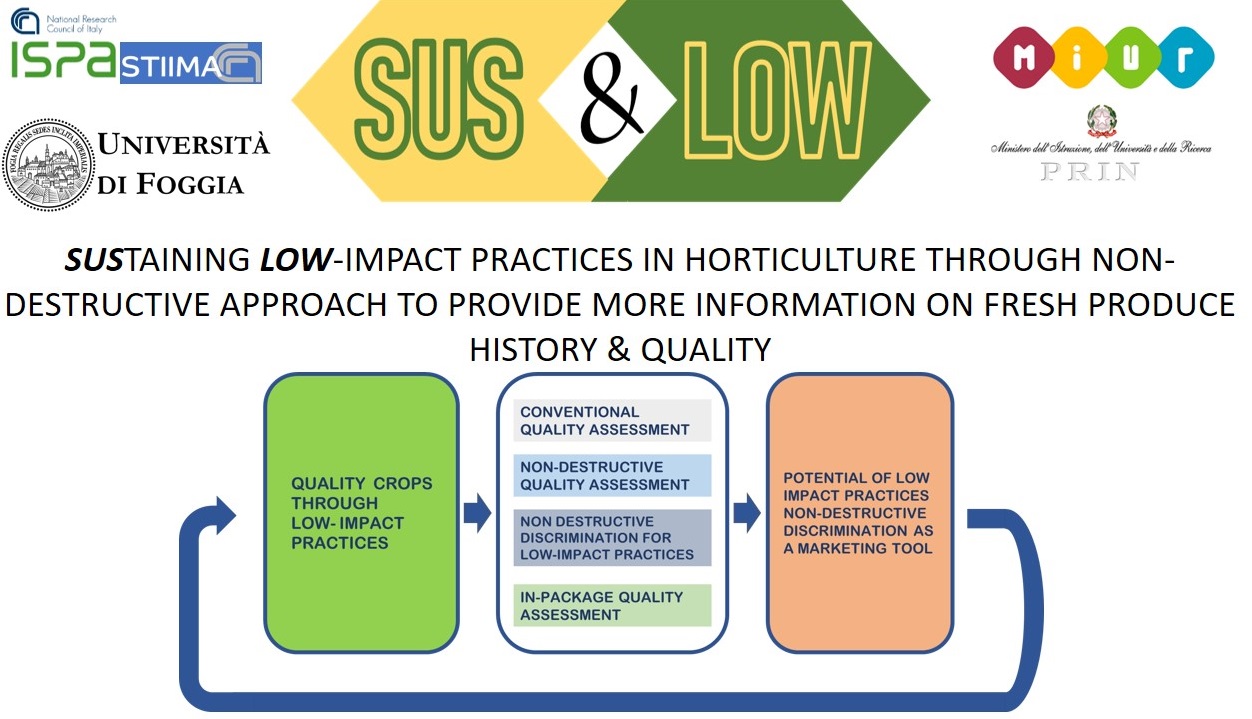Sustaining low-impact practices in horticulture through non-destructive approach to provide more information on fresh produce history and quality: the SUS&LOW project

Published 2023-01-18
Keywords
- Marketing strategies sustainability,
- non-destructive assessment,
- quality,
- shelf-life
How to Cite
Copyright (c) 2023 Marialuisa Amodio, Giovanni Attolico, Lucia Bonelli, Maria Cefola, Hassan Fazayeli, Francesco Montesano, Bernardo Pace, Michela Palumbo, Francesco Serio, Antonio Stasi, Giancarlo Colelli

This work is licensed under a Creative Commons Attribution 4.0 International License.
Funding data
-
Ministero dell’Istruzione, dell’Università e della Ricerca
Grant numbers 201785Z5H9
Abstract
The general aim of the project SUS&LOW is to increase the sustainability of fresh produce by testing and implementing low-input agricultural practices (LIP) with positive impact on product quality with the support of non-destructive (ND) tools for real-time quality assessment and for product discrimination. Additionally, new marketing strategies are generated to better support the added value of the products and to satisfy the final consumers’ preferences. The SUS&LOW project consists of three work packages (WP) and the adopted methodology used two model crops: rocket salad and tomato. The WP1, focused on the reduction of agricultural inputs, showed that sensor-based fertigation management might improve sustainability of soilless cultivation. Results coming from WP2, aimed to the evaluation of ND techniques, outlined the high potentiality of hyperspectral imaging (HSI) and Fourier transformed-near infrared (FT-NIR) techniques for the authentication of sustainable growing methods. Moreover, project activities’ proved computer vision system (CVS) as an effective tool for evaluating the product quality also through the bag. The WP3, dealing with marketing strategies, indicated a positive approach of consumers compared to LIP products certified through a visual storytelling platform.




